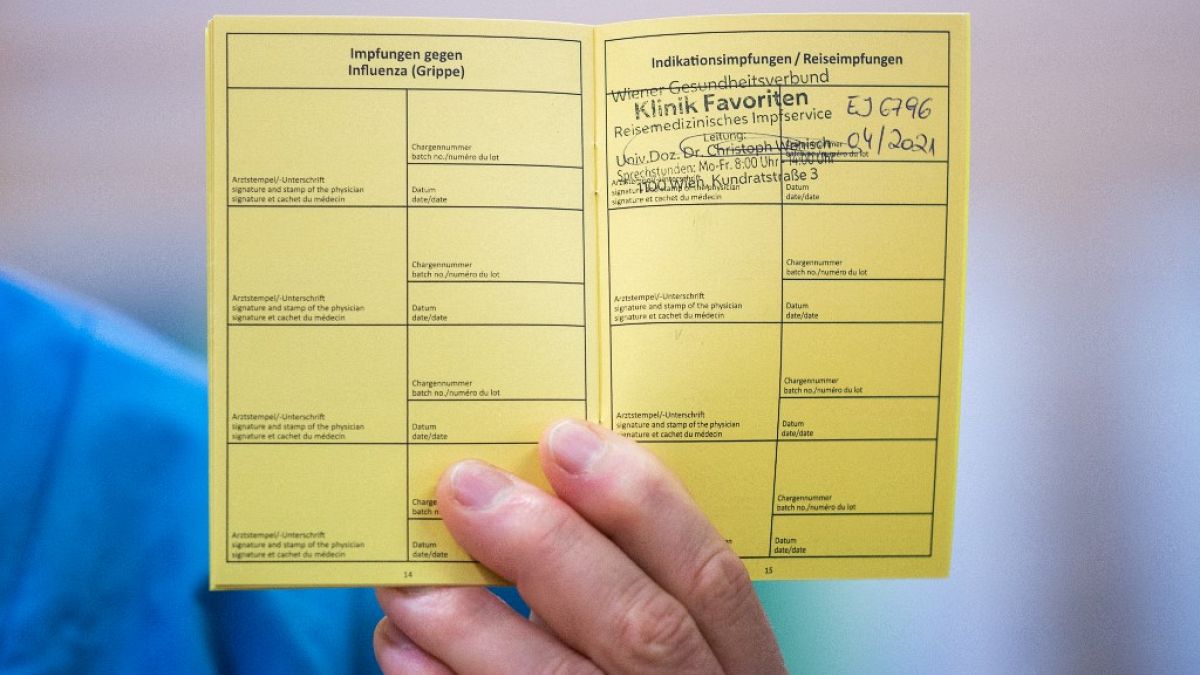European Commission President Ursula von der Leyen said after a virtual meeting of EU leaders that vaccination certificates could be ready to use in three months time.
EU vaccine certificates could be ready to use within three months, according to the European Commission President.
Ursula von der Leyen was speaking at a press conference in Brussels Thursday, after a virtual meeting of the continent's leaders, where she said that a document saying whether citizens have been inoculated or not could be put to use soon.
"The time frame, the three months is regarding the technical development, so we do need at least three months for the technical development of an interoperable system on the European level. There is lots of work to do by the Commission on the European level and lots of work to do technically for the member states on the national level," von der Leyen explained.
The certificate will be for those who have received their jab, a negative PCR test or who already have antibodies.
And according to Guntram Wolff, Director of think-tank Bruegel, it should be quite straightforward.
"We have vaccination passes already now and these vaccination passes are used as proof when you travel to countries, for example, for yellow fever. So yes there might have to be a bit of adaptation of these kinds of passes, but at the end of the day, I’m sure this is no rocket science, it is something very simple and it should be implementable," Wolff told Euronews.
EU nations divided
While southern European countries dependent on tourism, like Greece and Spain, support certificates, northern EU nations like Germany have so far been sceptical on whether such a system would work.
“First it must actually be clearly resolved that vaccinated people are no longer infectious,” German Chancellor Angela Merkel said in an interview published Thursday in the daily Frankfurter Allgemeine Zeitung.
“As long as the number of those who have been vaccinated is still so much smaller than the number who are waiting for vaccination, the state should not treat the two groups differently.”
"I feel that there is a lot of confusion sometimes on this subject," said French President Emmanuel Macron, speaking at a press conference after the summit on Thursday.
"If we manage to reopen certain places, we cannot condition their access to vaccination, even though we would not even have opened vaccination to the youngest."
'Speeding up production and delivery'
EU heads of state and government were meeting to take stock of the epidemiological situation on the continent, where they also agreed to prioritise increasing the production and delivery of vaccines, saying that they will work with the pharmaceutical industry to facilitate the process.
"Our top priority now is speeding up the production and delivery of vaccines and vaccinations across the European Union and it is why we support the Commission’s efforts to work with industry to identify bottlenecks, guarantee supply chains and scale up production and we want more predictability and transparency to ensure pharmaceutical companies comply with their commitments," European Council President Charles Michel said Thursday.
He also said that the 27-member bloc must continue to invest in vaccine research, in order to fight against any new COVID-19 variants that may arise.
EU leaders will hold another videoconference call tomorrow to discuss security and defence, as well as relations with the Southern Neighbourhood countries in North Africa and the Middle East.
